KSDE & CAEP ANNUAL REPORTING MEASURES
KSDE (Kansas State Department of Education) and CAEP (Council for the Accreditation of Educator Preparation) use annual reporting measures to provide information to the public about Baker educator preparation programs’ outcome and program impact.
Undergraduate Programs at the School of Education (USOE) for Teacher Initial Programs
The following initial programs were granted KSDE and CAEP accreditation on March 13, 2018. KSDE/CAEP accreditation status is effective between fall 2017 and spring 2024 (10/23/17-6/30/24). The next site visit for USOE teacher initial programs takes place in the fall of 2023.
Each USOE program shown below is being processed within its seven-year review cycle by KSDE for approval as continuing programs.
- Biology – Baccalaureate Degree
- Business – Baccalaureate Degree
- Chemistry – Baccalaureate Degree
- Elementary Education – Baccalaureate Degree
- English – Baccalaureate Degree
- Health – Baccalaureate Degree
- History, Government, and Social Studies – Baccalaureate Degree
- Mathematics – Baccalaureate Degree
- Middle Level English – Baccalaureate Degree
- Middle Level Mathematics – Baccalaureate Degree
- Music Education (General, Instrumental, Vocal) – Baccalaureate Degree
- Physical Education – Baccalaureate Degree
Graduate Programs at the School of Education (GSOE) for Advanced Programs
The following advanced graduate programs at the School of Education (GSOE) were granted KSDE/CAEP accreditation on February 24, 2021. The KSDE/CAEP accreditation status is effective between spring 2021 and spring 2024 (2/24/21 – 6/30/24). Each GSOE program shown below is being processed within its seven-year review cycle by KSDE for approval as continuing programs.
- District Leadership (PK-12) – Doctoral Degree
- Building Leadership – Master’s Degree
- High-Incidence Disabilities – Master’s Degree
CAEP Accountability Measures
For CHEA Requirements 2021-2022 Academic Year
Measure 1 (Initial): Completer effectiveness.
Completer impact in contributing to P-12 student-learning growth (R4.1)
Completer effectiveness in applying professional knowledge, skills, and dispositions (R4.1)
Measure 2 (Initial and Advanced): Satisfaction of employers and stakeholder involvement
Employers satisfaction with program completers (R4.2) (5.3) (RA4.1)
Measure 3 (Initial and Advanced): Candidate competency at completion.
Educator preparation program (EPP) pass rates allow students considering a career as a teacher, leader, or high-incidence disabilities educator to compare the performance of educator candidates from Baker University’s educator preparation programs to Kansas and national pass rate averages on the tests required for licensure as a teacher in Kansas.
What the Pass Rates Indicate
The pass rate indicates the percentage of candidates from a college or university that took and passed the examinations. Note that some candidates may take these examinations before they complete the educational program at the college or university, which could affect the pass rate. Data is extracted from Educational Testing Service (ETS) Data Manager. N represents examinees who took the indicated exam during the specific testing period and self-reported that they attended Baker University School of Education. National performance data are provided for comparison.
Pass Rate Data are Just One Factor When Choosing a University EPP
Please note that the test data was not collected nor is it intended to be used for the purpose of evaluating individual teacher preparation programs; many factors affect test score data. The data are provided as a service to interested individuals and represent only one of many sources of information that should be carefully considered when making college application decisions. Additionally, other criteria should be considered when applying to an institution of higher education, such as financial resources expended by the institution, curriculum offered, and the experience and number of advanced degrees held by the faculty, just to name a few. Parents and students should consider a variety of factors when making application decisions.
School of Education Pass Rates
High-Incidence Praxis Pass Rates
SLLA Praxis Pass Rates
SSA Praxis Pass Rates
Measure 4 (Initial and Advanced): Ability of completers to be hired.
Baker School of Education collects employment data of its program completers in several ways. We utilize email communication between program completers, social media, Teacher Education and Licensure database at KSDE, and Baker faculty and graduates networking. The table below provides the percentages of program completers in USOE who were employed the first year after program completion. Graduates from 2021-22 have a 100% employment rate for their first teaching job. Graduates of our School of Education graduate programs are currently employed in education in order to complete program requirements.
Undergraduate Programs Employment Table
Graduate Programs Promotions Table
Doctoral Program Promotions Table
Supporting Documents
Title II Reports
Title II Website
Traditional Report | 2020
Traditional Report | 2019
Traditional Report | 2018
Traditional Report | 2017
Traditional Report | 2016
Traditional Report | 2015
Traditional Report | 2014
Traditional Report | 2013
Traditional Report | 2012
Traditional Report | 2011
Policy Handbooks
2022-2023 TEPPH
2021-2022 TEPPH
2020-2021 TEPPH
2020-2021 Health & PE
2019-2020 TEPPH
2018-2019 TEPPH
2017-2018 TEPPH
2016-2017 TEPPH
2015-2016 TEPPH
2014-2015 TEPPH
Scholarships
Baker School of Education provides these financial awards to be applied to the following year’s tuition:
- Mildred Hunt Riddle Departmental Recognition Scholarship for Education
- Carol Lee Miller and Carla Miller Reynolds Scholarship
- E. Vincent “Doc” Reichley Scholarship
- Helen Bauer Endowed Scholarship
- Rose Lister Goertz Scholarship
- Clara Louise Johanning-Dufrene Scholarship
- Dan and Peggy Harris Scholarship
- Joyce Haskins Fox Scholarship
- Cassity-Dunnavant Scholarship
- Graduates who earn a Bachelor of Science in Education from Baker are eligible for a 10% tuition discount when they enroll in Baker’s Master of Arts in Education, Master of Science in Special Education, or Master of Science in School Leadership program.

